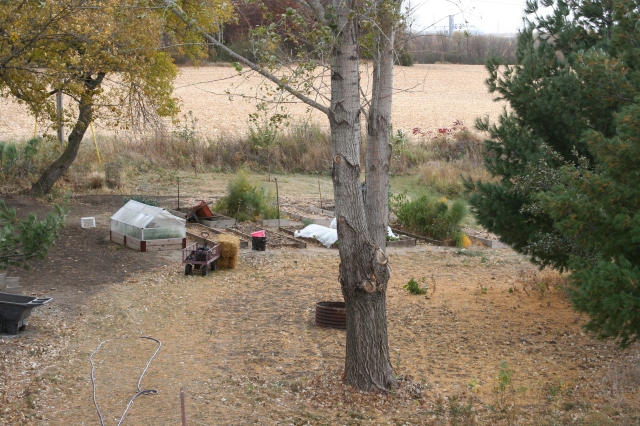 Last night we had our first “winter storm.” The temperature dropped from the 70s to the 30s and the wind howled all night. What I waited for, however, was the sound of precipitation. In the north of the state, there was up to 3 inches of snow by this morning. Where we are, however, it is dry. The low layers of clouds just keep blowing and blowing by.
Last night we had our first “winter storm.” The temperature dropped from the 70s to the 30s and the wind howled all night. What I waited for, however, was the sound of precipitation. In the north of the state, there was up to 3 inches of snow by this morning. Where we are, however, it is dry. The low layers of clouds just keep blowing and blowing by.
Robins are out pecking the newly planted grass seed, the pond is almost dry, and even one of the lakes I drive by every day displays the dramatic drop in the water line on the cat tails that surround its banks.
In this context, I’m working on a revision of The Art of The Saint John’s Bible, combining the three volumes into one, revisiting in much shorter order the books of the Old Testament. And there I see it again, the food insecurity that marks our current age.
First there are the Israelites in the desert, living on manna and quail that God delivers them daily. This morning I read again about Ruth and Naomi. Here is what I’ve written:
Two widows are not better than one when it comes to providing for themselves. But it is clear that without Ruth, Naomi’s prospects would have been quite dim. Ruth takes on the dangerous task of gleaning, walking behind the harvesters to pick up the meager grain left behind. It seems she might be able to provide the two of them with food this way during the harvest, but it’s unclear how she will continue to provide after the harvest is over. Also, mention is made of the dangers of gleaning and the strong possibility of being “bothered” or mistreated by the men in the fields.
I’m aware of the later stories, too, particularly of Elijah’s travails in the desert as he meets the woman and son preparing to die after they make their morning cakes with the last of the oil. God provides the oil that keeps them alive, but just barely.
In this political season, we’re hearing a lot about people on the edge, people just barely providing. I remember a poem by Joan Larkin, one of my first teachers, that said something like this: “the difference between working and paying for childcare and not working is food on the table.”
The first winter storm, rain/snow or not, signals a time of moving inward, of quiet and leanness. In my cold frame I’ve planted two true winter crops: claytonia and mache. And yet, I think they might be, like purslane, something I’m not going to want to actually eat! Lucky for me, I have choices, and money, and access to all sorts of good food. Yesterday I made Squash Stew with Cornbread Dumplings, this time every ingredient but the dumplings coming from my garden stores.
The wind is still gusting outside my window. I’ve put on a black turtleneck and black pants. And hunkering down with my work on the manuscript, the ancient stories feel very close and very true.



